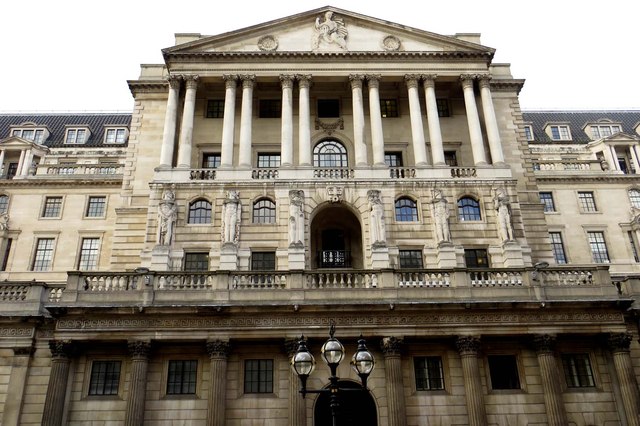A report launching in Parliament gives vital advice on how to "hardwire" Britain's central bank to the environmental upheavals to come.

Green campaigners are launching a new report in Parliament today advising the Bank of England on how to become a leading enterprise in a low-carbon economy.
The document, put together by Positive Money’s researcher Rob Macquarie, argues that it is part of the responsibilities of the central bank to safeguard the national economy and the stability of the financial system. And while that aim was set following the 2008 financial crisis, the new challenges to the financial sector lie in areas slightly removed from the City’s usual worries.
Before the launch, Rob Macquarie said:
“The climate crisis and the low-carbon transition presents a fundamental challenge for finance, changing the context for central banking. Central banks underpin and oversee the financial and monetary system and have enormous resources at their disposal, so must do more to support the green transition”
The economist also warned the Bank of England that looking at the effects of climate change on financial stability alone was too limiting. He added that the bank had to play its part in making the British economy viable for the challenges ahead.
“By focusing solely on climate change as a risk to financial stability, the Bank of England runs the risk of leaving meaningful action until it is too late. Climate change also threatens the long-term viability of the economy, which is of concern to the Bank, but cannot be addressed by looking at financial stability alone.
“The Bank of England’s mandate must be hardwired for sustainability and climate change.”
Macquarie’s report goes as far to say that the central bank’s monetary policy has gone against decarbonisation efforts, as it invested in high-carbon sectors as part of its quantitative easing programme.
Positive Money is calling on the Bank of England to act on a series of fronts, including disclosing the carbon risk of assets on its own balance sheet. The central bank was also advised to divest from bonds issues by fossil fuel companies, as well as to consider “quantitative easing for people” as part of a sustainable investment drive in the British economy.
“We must stop compartmentalising climate change – its the greatest disruptive force in global finance. We’ll destroy ourselves by not dealing with climate change.”
To reach hundreds of thousands of new readers we need to grow our donor base substantially.
That's why in 2024, we are seeking to generate 150 additional regular donors to support Left Foot Forward's work.
We still need another 117 people to donate to hit the target. You can help. Donate today.



